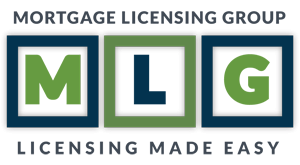West Virginia Loan Officers See Increase in Fees
 Mortgage licensees will see an increase in fees as well as an increase in the educational requirements as part of an amendment to the state’s licensing law. Since July 2000, all MLO’s need to be licensed and this amendment makes changes to the licensing process. What do these changes mean for you? Read on to find out.
Mortgage licensees will see an increase in fees as well as an increase in the educational requirements as part of an amendment to the state’s licensing law. Since July 2000, all MLO’s need to be licensed and this amendment makes changes to the licensing process. What do these changes mean for you? Read on to find out.
The Background of the Amendment
In West Virginia, the state Senate approved the amendment unanimously and the House passed it 90 to 5. It will go into effect 90 days after its passage, according to the final version of the bill.
Sponsored by Cindy Frich, the chairwoman of the House Banking Committee, the amendment addresses changes to the educational requirements both before and after taking their licensing test.
Potential Future Changes
The U.S. Senate is also in the process of debating S. 2155, the Economic Growth, Regulatory Relief, and Consumer Protection Act, that will include a provision to allow transitional licensing for registered loan originators working for depositories that are moving to work with an independent mortgage banker or broker.
What Do the Changes Mean for West Virginia?
The passage of the bill in West Virginia means that the license application fee has increased by $150. For those looking to get their license, the pre-educational requirements have gone from 22 hours to 24. The additional training is related to the state’s mortgage and consumer laws.
For those who are already licensed, there are also changes to the educational requirements with the addition of another hour of training on West Virginia law or regulations.
The Requirements to Get Licensed in West Virginia
If you are a West Virginia mortgage company license holder or looking to become licensed, you will still need to meet the net worth requirements for either a broker or lender license. The net worth requirement for a broker is $10,000, while the requirement for a lender is $250,000.
Part of the licensing procedure in West Virginia involves state specific fingerprint cards. These cards can be requested from the state.
Additionally, West Virginia requires a licensed MLO and an onsite QI. The QI can be a branch manager, with their business address needing to match the main address found on the MU1.
Another critical requirement for a broker or lender license is the bond amount. For a broker, the bond amount is $50,000, but a lender needs to have a $100,000 bond. Like many other states, they also require that you submit audited financials.
To apply for a broker or lender license in West Virginia, it is important to recognize that there are additional fees. For example, a mortgage lender will have to pay a state fee of $1,350.
How Can We Help?
It is beneficial to know exactly what fees are involved in the specific licensing that you wish to obtain.
The Mortgage Licensing Group can help you to determine what you need in order to receive your broker license or to obtain your mortgage lender license for the state of West Virginia. Contact us to start your journey to becoming a licensed broker or lender in the state of West Virginia.
The Mortgage Licensing Group, Inc. is a full-service mortgage licensing firm headquartered in Southern California that is recognized throughout the industry as an experienced and reliable service provider. Established in 2006, our company has been on the forefront of the ever-changing rules and regulations, helping alleviate the often daunting task of meeting the diverse state licensing requirements for our clientele.

